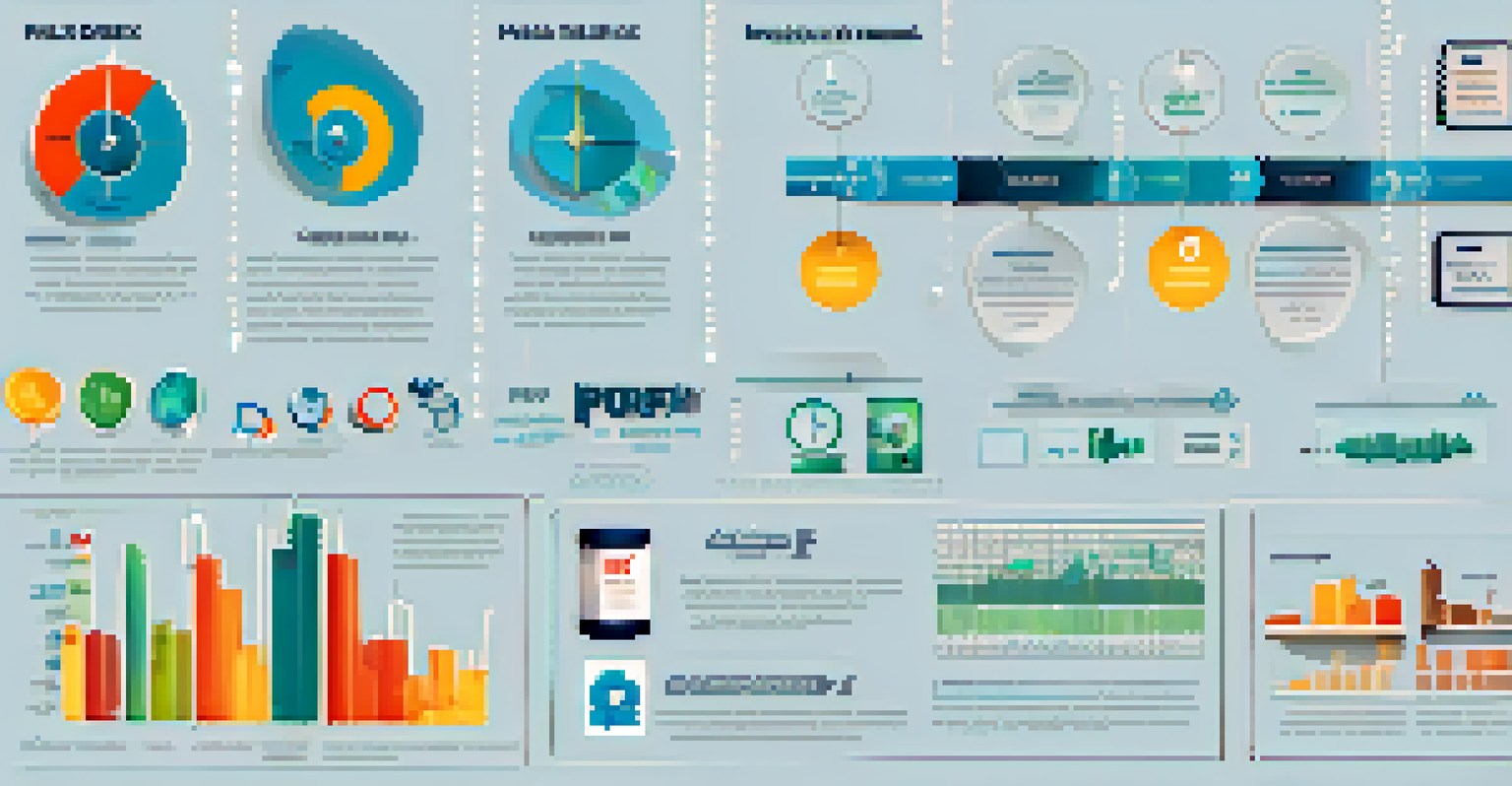The Basics of Forex Trading: A Beginner's Guide

Understanding Forex: What is it and How Does it Work?
Forex, or foreign exchange, is the global marketplace for trading national currencies against one another. Unlike traditional stock markets, Forex operates 24 hours a day, five days a week, allowing traders to buy and sell currencies at any time. The main goal in Forex trading is to profit from the fluctuations in currency values, which are influenced by various economic factors.
In trading and investing, what is comfortable is rarely profitable.
At its core, Forex trading involves pairs, such as EUR/USD or GBP/JPY. The first currency in the pair is called the base currency, while the second is the quote currency. Traders buy a currency pair if they believe the base currency will strengthen against the quote currency, or sell if they think it will weaken.
Understanding how currencies are affected by economic indicators, geopolitical events, and market sentiment is crucial for successful trading. Familiarizing yourself with these factors can help you make informed trading decisions and recognize potential opportunities.
Key Terminology Every Beginner Should Know
Before diving into Forex trading, it's essential to understand some key terms. For instance, 'pips' are the smallest price movements in a currency pair, typically measured in the fourth decimal place. Another important term is 'leverage', which allows traders to control larger positions with a smaller amount of capital, amplifying both potential profits and losses.

You should also be familiar with 'spread', which is the difference between the buying and selling price of a currency pair. The spread can vary based on market conditions and liquidity, so it's important to consider it when calculating your potential profits. Lastly, 'margin' is the amount of money required to open a leveraged position, and understanding how it works is vital to managing your risk.
Create a Trading Plan
A solid trading plan outlines your goals and risk management strategies, essential for disciplined trading success.
By learning these terms, you'll have a solid foundation to build upon as you delve deeper into the world of Forex trading. Knowledge of terminology will help you communicate effectively and understand the strategies employed by other traders.
Choosing the Right Forex Broker for Your Needs
Selecting a trustworthy Forex broker is a significant step for any beginner. Look for brokers that are regulated by reputable authorities, as this can provide some assurance of their reliability and fairness. Additionally, consider factors such as trading fees, spreads, and the types of accounts they offer to ensure they align with your trading style.
The market is a device for transferring money from the impatient to the patient.
It's also essential to evaluate the trading platform provided by the broker. A user-friendly interface, reliable performance, and access to essential tools and resources can greatly enhance your trading experience. Many brokers offer demo accounts, allowing you to test their platform without risking real money.
Lastly, take the time to read reviews and gather feedback from other traders. Their experiences can provide valuable insights into the broker's reliability, customer service, and overall reputation in the industry.
Fundamental vs. Technical Analysis: What Should You Use?
In Forex trading, analysis is key to making informed decisions. Fundamental analysis focuses on economic indicators, such as interest rates, inflation, and employment data, to gauge the health of a currency. By understanding how these factors influence currency values, traders can anticipate market movements and make educated predictions.
On the other hand, technical analysis relies on historical price data and chart patterns to identify trends and potential entry and exit points. By using various tools, such as moving averages and support and resistance levels, traders can develop strategies based on market behavior rather than economic fundamentals.
Understand Forex Basics
Forex trading involves buying and selling currency pairs to profit from their value fluctuations.
Ultimately, many successful traders use a combination of both analytical approaches. By integrating fundamental and technical analysis, you can gain a more comprehensive understanding of the market and enhance your trading strategies.
Developing a Trading Plan: Your Blueprint for Success
Creating a trading plan is essential for any aspiring Forex trader. A solid plan outlines your goals, risk tolerance, and trading strategy, helping you stay focused and disciplined in your trading journey. Start by defining your financial objectives, such as the amount of profit you hope to achieve and the time frame for reaching those goals.
Next, establish your risk management rules, including how much you're willing to risk on each trade and your overall capital allocation. This is crucial, as proper risk management helps protect your trading capital and ensures longevity in the market. Additionally, outline your preferred trading strategies and the indicators you'll use to make decisions.
Finally, regularly review and adjust your trading plan as needed. The Forex market is dynamic, and your plan should evolve with your experience and changing market conditions. Consistently following your plan can help you remain disciplined and improve your overall trading performance.
Practicing with a Demo Account: Why It’s Important
Before risking real money, it's wise to practice trading with a demo account. Most Forex brokers offer demo accounts that simulate real trading conditions, allowing you to test your strategies without financial risk. This is especially beneficial for beginners, as it provides a safe environment to learn the ropes and gain confidence.
Using a demo account enables you to familiarize yourself with the trading platform, explore various features, and learn how to execute trades effectively. You can also experiment with different strategies to see what works best for you without the pressure of losing actual funds.
Key Terms for Beginners
Familiarity with terms like pips, leverage, and margin is crucial for effective communication and strategy development in Forex trading.
Remember that while a demo account is an excellent tool for learning, it's essential to approach it with the same seriousness as live trading. Developing good habits and discipline in your demo trading will help you transition more smoothly into the real Forex market.
Common Mistakes to Avoid as a Forex Beginner
As a beginner in Forex trading, it's easy to fall into common pitfalls that can hinder your success. One of the most significant mistakes is over-leveraging your trades. While leverage can amplify profits, it can also lead to substantial losses if not managed carefully. Always ensure that you use leverage wisely and adhere to your risk management rules.
Another common error is neglecting to keep a trading journal. Documenting your trades, including your thought process and outcomes, can help you identify patterns in your trading behavior. This self-reflection enables you to learn from your mistakes and refine your strategies over time.

Lastly, avoid the temptation to chase losses or make impulsive trading decisions based on emotions. Staying disciplined and sticking to your trading plan can help you navigate the ups and downs of the Forex market more effectively.